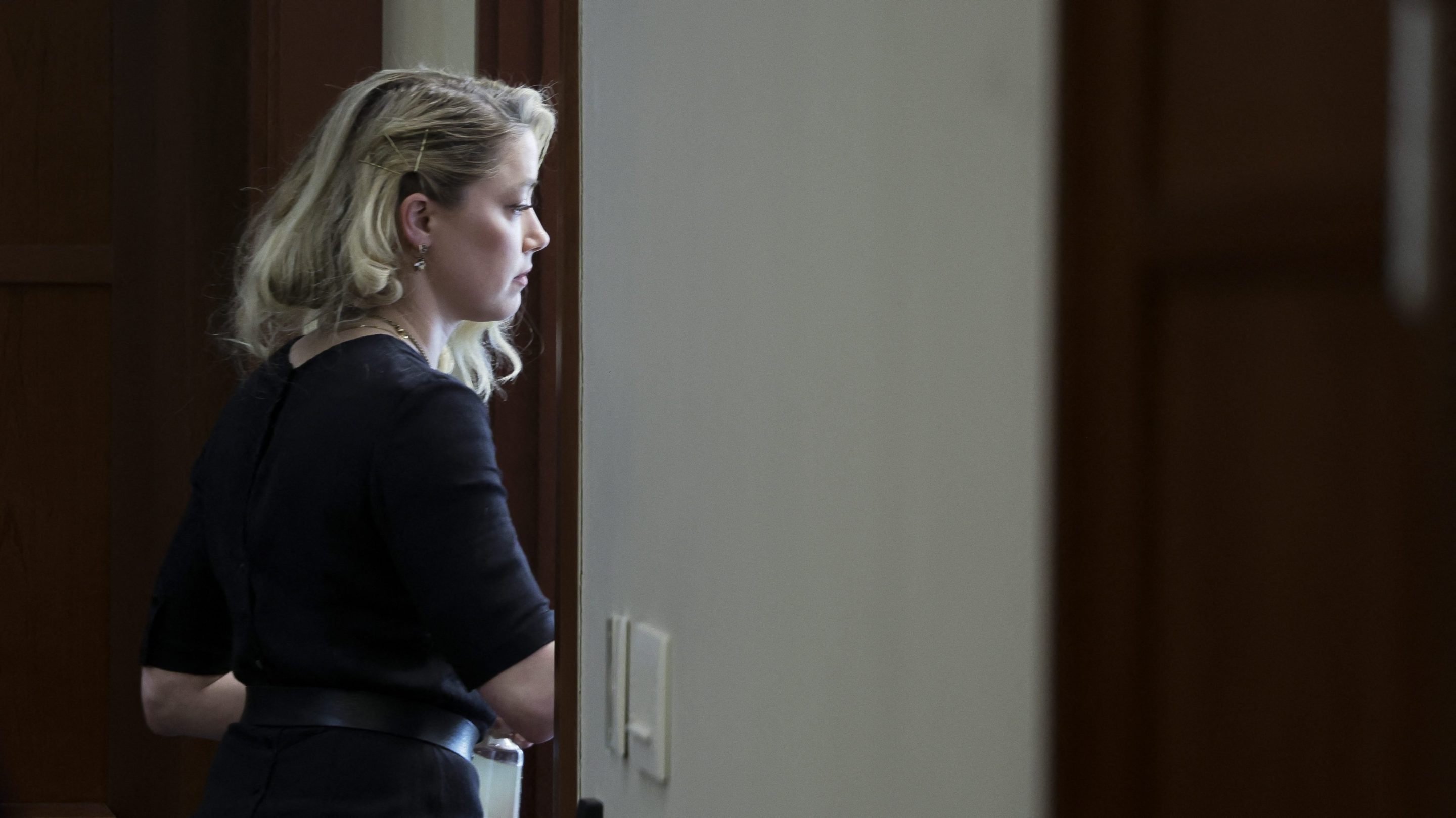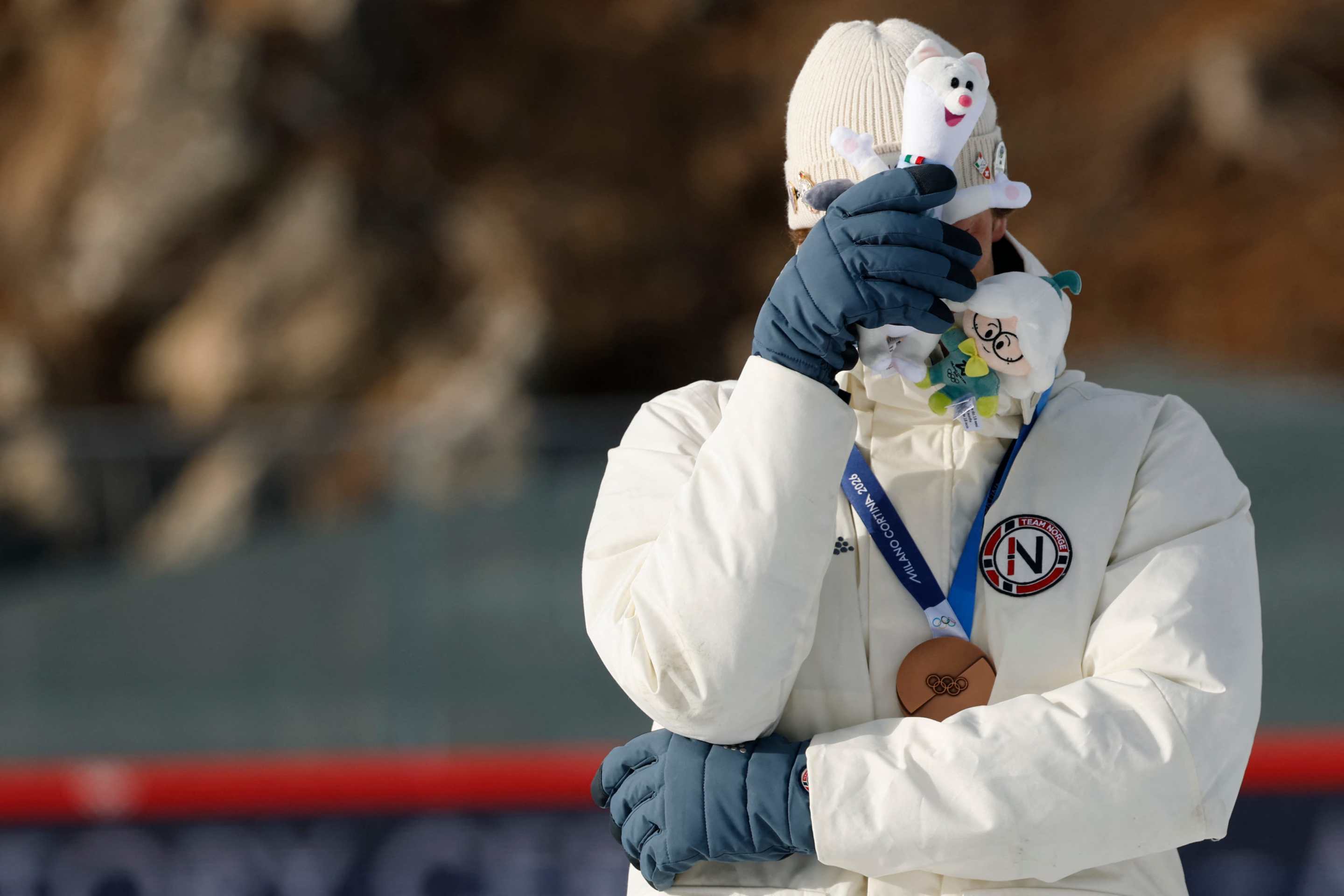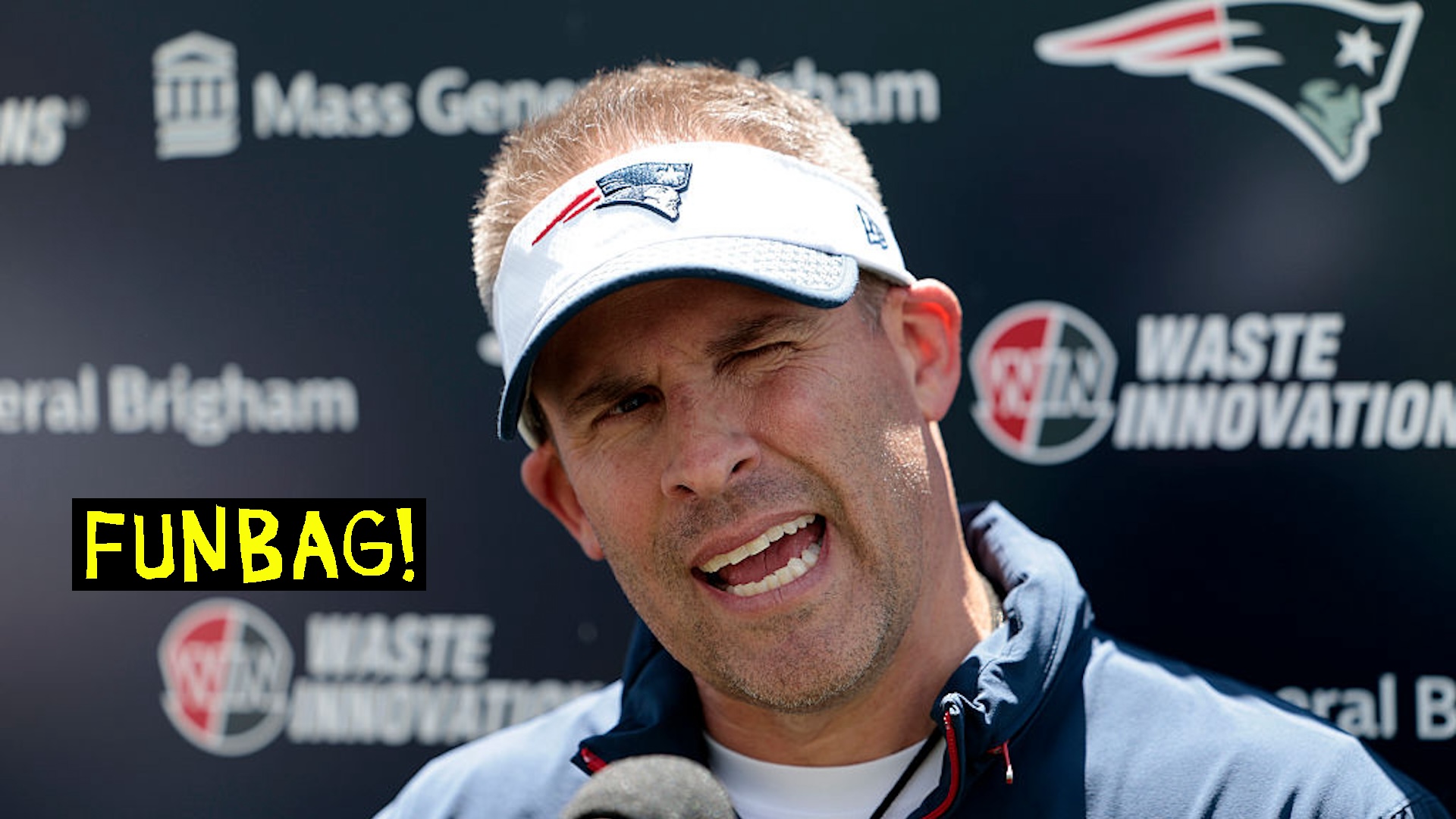A jury in Fairfax, Virginia, ruled on Wednesday that actress Amber Heard was liable for defaming her ex-husband, actor Johnny Depp, when she said in a Washington Post op-ed that she was a public figure "representing domestic abuse." The jury said that Heard owed Depp $15 million in damages. The jury also found that Depp was liable for defaming Heard through a comment made by his former lawyer, who called Heard's stories of abuse a "hoax." For that, the jury said that Depp owed Heard $2 million in damages. The verdicts were the culmination of a six-week trial that seemed to permeate the popular culture. There were tabloid headlines and New York Times headlines, wall-to-wall TV coverage and endless TikTok scrolls, and, because this is 2022, brands weighing in. Even if you did your best to avoid the trial, you knew about it. Depp v. Heard became like the weather, a horrible storm enveloping us all.
Throughout the trial, Depp was exuding the energy of a man preparing for victory. He showed up at a Jeff Beck concert in England days before the verdict was announced, putting on the type of performance that made him famous, all rock 'n' roll swagger and leading-man bravado, dressed up in extravagant fashion. The whole performance went so well that he showed up again and again. This was hardly a hidden fact; the first venue that Depp played tweeted out a thank you. At the third show, supermodel Kate Moss, who once dated Depp and testified in his support, made an appearance. Where was Heard in all this? I have no idea. Maybe she was keeping a low profile. Maybe the media didn't care.
What all this skips over are the volumes of documentation gathered by Heard. The photos she took of her injuries, like victims of intimate partner violence are told to do. The text messages and voice recordings she saved of Depp threatening her or humiliating her, like victims of intimate partner violence are told to do. The initial restraining order she got, just like victims of intimate partner violence are supposed to do, which was granted by a Los Angeles judge at the beginning of Heard's divorce from Depp in 2016. It also ignores that this was was the second trial waged by Depp; he previously sued the News Group Newspapers, publisher of British tabloid the Sun, for a headline that called him a wife beater. It's notable that in the United Kingdom—a country whose libel law is so tough that it spawned the concept of "libel tourism"—Depp lost. The judge found that the article was "substantially true.” By Wednesday, none of that mattered. A lengthy editor's note was parked right atop the Post's op-ed.
Speaking to the Post in a separate article, international media lawyer Mark Stephens explained that Depp's victory was a matter of courtroom tactics, specifically something called DARVO—deny, attack, and reverse victim and offender—which sounds like a fancy acronym for how fighting on the internet works. He told the newspaper: “We find that DARVO works very well with juries but almost never works with judges, who are trained to look at evidence." But I can't shake the feeling that the most important tactical shift might simply have been in changing the legal opponent. In the United Kingdom, Depp sued the journalist Dan Wootton and a newspaper owned by global oligarch Rupert Murdoch. In the United States, Depp sued one woman, his ex-wife, meaning his lawyers could deploy a tried-and-true defense: Maybe some of this stuff happened, but also she's crazy and nobody likes her.
Within 24 hours of the verdict, amid reports of survivors of sexual and intimate partner violence saying the decision re-emphasized to them that they should not speak out, Depp posted a victory statement to Instagram. As the day went on, the list of celebrities who liked Depp's victory post on Instagram only grew. According to a BuzzFeed tracker, 79 celebrities from all walks of fame liked it. The list probably includes a few of your favorites. Taika Waititi? On the list. LaKeith Stanfield? On the list. Patti Smith? On the list. Jennifer Aniston? On the list. The same article reported that four celebrities had liked Heard's post, but one of them is Jason Momoa, who also liked Depp's.
Maybe all these celebrities liked what Depp had to say because they genuinely consider themselves Depp's friends. Or maybe they just see him as an example of what is always prized: a famous, powerful, and wealthy man on an upswing. Depp, you could say, has heat. And what matter more than heat? Who doesn't want to be associated with a verified movie star who just got a big win? And, anyway, you can practically hear all those celebrities saying, a court found him innocent. There is no guilt or innocence in a civil case, of course, but I highly doubt many people in Depp's community will worry about that detail.
I don't know that a win for Heard would have felt terribly different. Depp has plenty of money to file endless appeals and, even if he had been found liable, he still would have exited a courtroom to a throng of cheering, adoring, supportive fans and a public relations team ready to spin any decision into a victory. How much could a jury verdict have mattered when seemingly everywhere around Depp there would be people signaling to him that he was doing great, that he was winning?
"Criminalization shifts the responsibility for policing intimate partner violence from the community to the state," University of Maryland law professor Leigh Goodmark wrote in her book Decriminalizing Domestic Violence. "While that initial move grew out of community failures to sufficiently protect people from abuse, the result has been to relieve communities of any responsibility for or ability to hold community members accountable without resorting to the criminal legal system."
By outsourcing intimate partner violence to our courts, our communities have excused themselves from the difficult but necessary work of holding our members—ourselves—accountable. Depp's courtroom victor is less valuable to him personally than it is to his community, which now has the cover it needs to carry on as it desired. Now it's OK to keep working with Depp, because a court cleared him. Now you can feel fine about watching the Pirates of the Caribbean and Edward Scissorhands and Ed Wood without a second thought, because a court cleared him. Most importantly, nobody needs to spend one second thinking about any harm Depp might have caused, because a court cleared him. It's an easy way to skip over the hard work of going through not just Heard's evidence but, as recounted by Michael Hobbes, Depp's documented history of throwing temper tantrums on set and attacking paparazzi, as well as accounts by actresses Ellen Barkin and Jennifer Grey that describe him as controlling, paranoid and, as Grey put it in her memoir, "crazy jealous." Why bother grappling with any of that after a court cleared him?
Depp and his legal team and his public relations team and his management team knew that physical evidence wasn't going to matter much in this case. They knew that it hinged on a much simpler equation: celebrity plus cash. The court battle was a framing device, a narrative tool to give Depp's fans and friends what they wanted all along, a way to continue feeling good about him. That so many people are willing to accept that so easily might not be a comfortable fact to sit with, but it's a truth that millions of people who have survived violence have always known.






